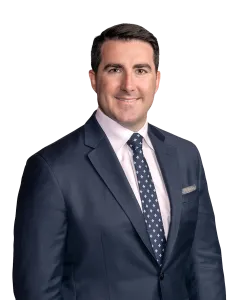Walgreens Settles for $106.8 Million Over FCA Violations
Headlines that Matter for Companies and Executives in Regulated Industries
Walgreens Settles for $106.8 Million Over FCA Violations
On September 13, the US Department of Justice (DOJ) announced that Walgreens Boots Alliance Inc. and Walgreen Co. (collectively, Walgreens) agreed to pay $106.8 million to resolve allegations of violating the False Claims Act (FCA) and state statutes. The allegations pertain to billing government health care programs for prescriptions that were never dispensed. The government alleged that from 2009 until 2020, Walgreens submitted claims to federal health care programs for prescriptions that were processed but never picked up by beneficiaries. This resulted in Walgreens receiving 10s of millions of dollars for prescriptions that were never actually provided to health care beneficiaries.
Under the resolution, Walgreens agreed to enhance its electronic pharmacy management system to prevent future occurrences and self-reported certain conduct. In addition, Walgreens refunded $66,314,790 related to the settled claims, which allowed Walgreens to receive credit under the DOJ’s guidelines for taking disclosure, cooperation, and remediation into account in FCA cases.
Under the settlement agreement, the federal government received $91,881,530, and the individual states received $14,933,259 through separate settlement agreements. The settlement will resolve three cases pending in the District of New Mexico, Eastern District of Texas, and Middle District of Florida under the qui tam, or whistleblower, provision of the FCA. Whistleblowers Steven Turck and Andrew Bustos, former Walgreens employees, will receive $14,918,675 and $1,620,000, respectively, for their roles in filing the suits.
The DOJ’s press release can be found here.
CVS Health Subsidiary Settles FCA Allegations for $60 Million
On September 16, Chicago company Oak Street Health, a subsidiary of CVS Health, agreed to pay $60 million to resolve allegations that it violated the FCA by paying kickbacks to third-party insurance agents in exchange for recruiting seniors to Oak Street Health’s primary care clinics from September 2020 through December 2022.
According to the DOJ, in 2020, Oak Street Health developed a program called the Client Awareness Program. Under the program, which was developed to increase patient membership, seniors who were eligible for Medicare Advantage received marketing messages designed to generate interest in Oak Street Health. Upon receipt of these messages, third-party insurance agents organized three-way phone calls with Oak Street Health employees for the interested seniors. Oak Street Health paid agents around $200 per beneficiary referred or recommended as part of this service. Instead of basing referrals and recommendations on the best interest of the seniors, these payments allegedly encouraged agents to base referrals and recommendations on Oak Street Health’s financial interests.
The DOJ’s press release can be found here.
Dunes Surgical Hospital Settles for $12.76 Million Over FCA Violations
On September 16, South Dakota companies Siouxland Surgery Center LLP, d.b.a. Dunes Surgical Hospital, United Surgical Partners International Inc. (USPI), and USP Siouxland Inc. agreed to pay approximately $12.76 million to settle FCA allegations related to improper financial relationships between Dunes and two physician groups. Since July 1, 2014, USPI has maintained partial ownership of Dunes through USP Siouxland, a wholly owned subsidiary of USPI. Following an internal investigation, Dunes and USPI disclosed the arrangements at issue to the government.
From at least 2014 through 2019, Dunes allegedly made financial contributions to a nonprofit affiliate of a physician group whose physicians referred patients to Dunes. According to the complaint, those payments allegedly funded the salaries of referring employees. Other allegations include that Dunes provided a different physician group with below-market-value clinic space, staff, and supplies. The DOJ alleged that these arrangements violated both the Anti-Kickback Statute and the Stark Law, which are “designed to ensure that decisions about patient care are based on physicians’ independent medical judgment and not their personal financial interest.”
Following Dunes’ and USPI’s internal compliance review and independent investigation, the companies promptly took remedial actions and disclosed such arrangements to the DOJ. The companies also provided the government with detailed and thorough written disclosures and cooperated throughout its investigation, resulting in cooperation credit for the companies.
Under the settlement, Dunes and USPI will pay $12.76 million to the federal government for alleged violations of the FCA, and approximately $1.37 million to South Dakota, Iowa, and Nebraska for their share of the Medicaid portion of the settlement.
The DOJ’s press release can be found here.
California Man Convicted for Paying Illegal Kickbacks for Patient Referrals to Addiction Treatment Facilities
On September 11, a federal jury convicted Casey Mahoney, 48, of Los Angeles, for paying nearly $2.9 million in illegal kickbacks for patient referrals to his addiction treatment facilities in Orange County, California. The facilities involved are Healing Path Detox LLC and Get Real Recovery Inc.
According to court documents and evidence presented at trial, Mahoney paid illegal kickbacks to “body brokers” who referred patients to his facilities. These brokers appeared to pay thousands of dollars in cash to patients to induce them to procure treatment at Mahoney’s facilities. Mahoney allegedly concealed these illegal kickbacks through sham contracts with the body brokers. The contracts purportedly required fixed payments and prohibited payments based on the volume or value of patient referrals, when in reality, payments were negotiated based on patients’ insurance reimbursements and the number of days Mahoney could bill for treatment. Mahoney also allegedly laundered the proceeds of the conspiracy through payments to the mother of one of the body brokers, falsely characterizing them as consulting fees.
The Eliminating Kickbacks in Recovery Act formed the basis of the charges against Mahoney. He was convicted of one count of conspiracy to solicit, receive, pay, or offer illegal remunerations for patient referrals, seven counts of illegal remunerations for patient referrals, and three counts of money laundering. He is scheduled to be sentenced on January 17, 2025, and faces a maximum penalty of five years in prison for the conspiracy charge, 10 years in prison for each illegal remuneration count, and 20 years in prison for each money laundering count.
The DOJ’s press release can be found here.
Contacts
- Related Industries
- Related Practices






